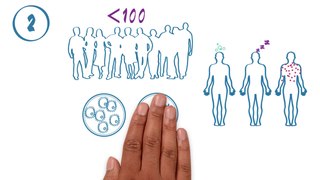
Tacrolimus, sold under the brand name Prograf among others, is an immunosuppressive drug. After allogenic organ transplant, the risk of organ rejection is moderate. To lower the risk of organ rejection, tacrolimus is given. The drug can also be sold as a topical medication in the treatment of T-cell-mediated diseases such as eczema and psoriasis. For example, it is prescribed for severe refractory uveitis after a bone marrow transplant, exacerbations of minimal change disease, Kimura's disease, and vitiligo. It can be used to treat dry eye syndrome in cats and dogs.

Venlafaxine, sold under the brand name Effexor among others, is an antidepressant medication of the serotonin-norepinephrine reuptake inhibitor (SNRI) class. It is used to treat major depressive disorder, generalized anxiety disorder, panic disorder, and social anxiety disorder. It may also be used for chronic pain. It is taken by mouth. It is also available as the salt venlafaxine besylate in an extended-release formulation.

Meloxicam, sold under the brand name Mobic among others, is a nonsteroidal anti-inflammatory medication (NSAID) used to treat pain and inflammation in rheumatic diseases and osteoarthritis. It is used by mouth or by injection into a vein. It is recommended that it be used for as short a period as possible and at a low dose.

Feline infectious peritonitis (FIP) is the name given to a common and aberrant immune response to infection with feline coronavirus (FCoV).

Cyproheptadine, sold under the brand name Periactin among others, is a first-generation antihistamine with additional anticholinergic, antiserotonergic, and local anesthetic properties.

Trospium chloride is used to treat overactive bladder.

Capromorelin, sold under the brand names, Entyce and Elura, is a medication used for the management of weight loss in cats and dogs. Capromorelin is a ghrelin receptor agonist known to increase appetite and weight gain.
Bertilimumab is a human monoclonal antibody that binds to eotaxin-1, an important regulator of overall eosinophil function.
Metelimumab (CAT-192) is a human IgG4 monoclonal antibody that neutralizes TGF beta 1 which had been chosen for further development for the treatment of diffuse cutaneous systemic sclerosis, also known as scleroderma. It was dropped from further development in favour of fresolimumab, which was being developed by Genzyme as of 2006.
Mapatumumab (HGS-ETR1) is an experimental human monoclonal antibody undergoing clinical trials for the treatment of cancer. It targets TRAIL-R1, also known as DR4, which is expressed on the surface of many tumor cell types.

Cambridge Antibody Technology was a biotechnology company headquartered in Cambridge, England, United Kingdom. Its core focus was on antibody therapeutics, primarily using Phage Display and Ribosome Display technology.
Fresolimumab (GC1008) is a human monoclonal antibody and an immunomodulator. It is intended for the treatment of idiopathic pulmonary fibrosis (IPF), focal segmental glomerulosclerosis, and cancer.
Briakinumab (ABT-874) is a human monoclonal antibody being developed by Abbott Laboratories for the treatment of rheumatoid arthritis, inflammatory bowel disease, and multiple sclerosis. As of 2011 drug development for psoriasis has been discontinued in the U.S. and Europe.
Moxetumomab pasudotox, sold under the brand name Lumoxiti, is an anti-CD22 immunotoxin medication for the treatment of adults with relapsed or refractory hairy cell leukemia (HCL) who have received at least two prior systemic therapies, including treatment with a purine nucleoside analog. Moxetumomab pasudotox is a CD22-directed cytotoxin and is the first of this type of treatment for adults with HCL. The drug consists of the binding fragment (Fv) of an anti-CD22 antibody fused to a toxin called PE38. This toxin is a 38 kDa fragment of Pseudomonas exotoxin A.

Tralokinumab sold under the brand names Adtralza (EU/UK) and Adbry (US) among others, is a human monoclonal antibody used for the treatment of atopic dermatitis. Tralokinumab targets the cytokine interleukin 13.

The phases of clinical research are the stages in which scientists conduct experiments with a health intervention to obtain sufficient evidence for a process considered effective as a medical treatment. For drug development, the clinical phases start with testing for drug safety in a few human subjects, then expand to many study participants to determine if the treatment is effective. Clinical research is conducted on drug candidates, vaccine candidates, new medical devices, and new diagnostic assays.

Irampanel is a drug which acts as a dual noncompetitive antagonist of the AMPA receptor and neuronal voltage-gated sodium channel blocker. It was under development by Boehringer Ingelheim for the treatment of acute stroke/cerebral ischemia but never completed clinical trials for this indication. Irampanel was also trialed, originally, for the treatment of epilepsy and pain, but these indications, too, were abandoned, and the drug was ultimately never marketed.

Pipendoxifene (INN) is a nonsteroidal selective estrogen receptor modulator (SERM) that was under development by Ligand Pharmaceuticals and Wyeth-Ayerst Laboratories for the treatment of breast cancer but was not marketed. It is a member of the 2-phenylindole group of SERMs and is structurally related to zindoxifene and the marketed bazedoxifene. The drug reached phase II clinical trials before its development was discontinued. It was synthesized at the same time as bazedoxifene and was intended as a backup drug for bazedoxifene, only to be developed further if bazedoxifene had failed in clinical trials. No further development was reported after 2002 and it was formally announced that development had been terminated in November 2005.

Imepitoin (INN), sold under the brand name Pexion, is an anticonvulsant which is used in veterinary medicine in Europe to treat epilepsy in dogs. It was recently approved in the United States. The drug also has anxiolytic effects. It was originally developed to treat epilepsy in humans, but clinical trials were terminated upon findings of unfavorable metabolic differences in smokers and non-smokers.

GS-441524 is a nucleoside analogue antiviral drug which was developed by Gilead Sciences. It is the main plasma metabolite of the antiviral prodrug remdesivir, and has a half-life of around 24 hours in human patients. Remdesivir and GS-441524 were both found to be effective in vitro against feline coronavirus strains responsible for feline infectious peritonitis (FIP), a lethal systemic disease affecting domestic cats. Remdesivir was never tested in cats, but GS-441524 has been found to be effective treatment for FIP and is widely used despite no official FDA approval due to Gilead's refusal to license this drug for veterinary use. An isopropylester pro-drug of GS-441524 - Obeldesivir has been developed by Gilead Sciences and is in Phase III clinical trials. A deuterated form has been developed by Vigonvita Life Sciences and is also in Phase III clinical trials.













